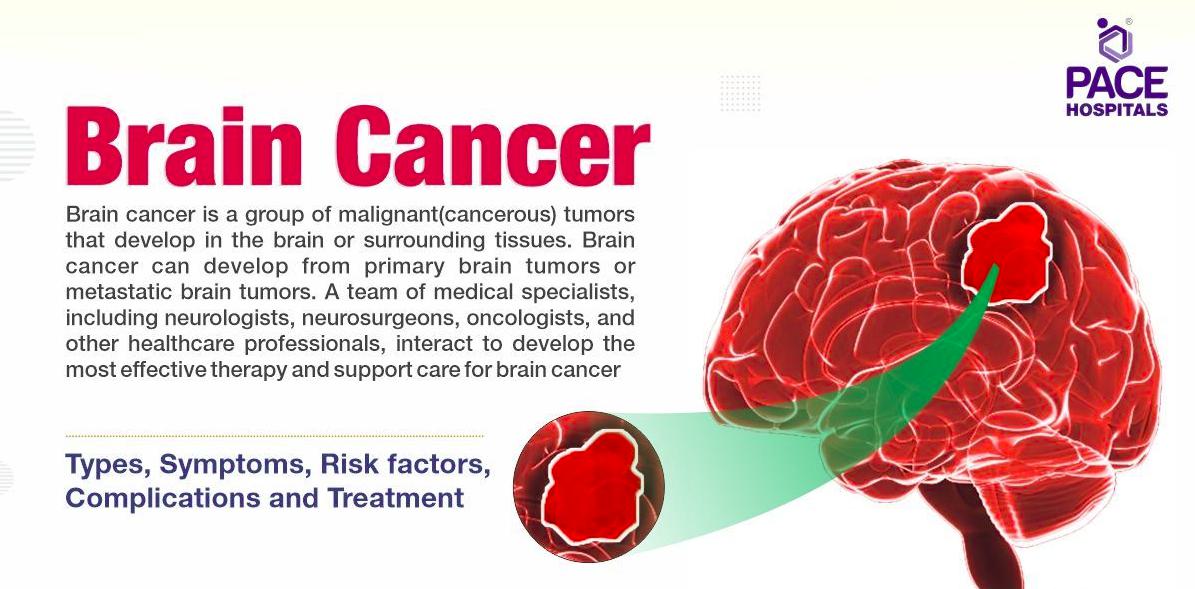Brain cancer is one of the most serious health conditions that can affect both the patient and their loved ones. While it is less common compared to other types of cancer, its impact on brain function and quality of life makes it a critical concern. Many people today are asking, how to prevent brain cancer and whether lifestyle choices can reduce the risks.
Although not all cases of brain cancer are preventable, understanding the factors that contribute to its development is a crucial step. By combining medical knowledge, healthy habits, and awareness of early warning signs, you can significantly lower the risk and improve overall brain health.
Definition and Overview
Brain cancer refers to the abnormal growth of cells in the brain that form malignant tumors. These tumors can disrupt brain function by pressing on nearby nerves, tissues, and structures. Unlike benign tumors, malignant brain tumors spread quickly and can be life-threatening. Brain cancer can originate in the brain itself (primary brain cancer) or spread from other parts of the body (secondary or metastatic brain cancer).
Types of Brain Cancer
There are several types of brain cancer, categorized based on the cell type and tumor location:
- Gliomas: The most common, including astrocytomas, oligodendrogliomas, and glioblastomas.
- Meningiomas: Tumors that form in the meninges (protective layers of the brain).
- Medulloblastomas: Fast-growing tumors often found in children.
- Pituitary tumors: Affect the gland responsible for hormones.
- Metastatic brain tumors: Cancer that has spread from another organ.
Causes and Risk Factors
While the exact cause of brain cancer is not always clear, several risk factors have been identified:
- Genetic mutations and inherited syndromes
- Exposure to high levels of radiation
- Family history of brain tumors
- Age (risk increases with age)
- Weakened immune system
- Environmental exposure to harmful chemicals
Symptoms and Early Warning Signs
Recognizing the symptoms of brain cancer early can make a big difference in treatment outcomes. Some common warning signs include:
- Persistent headaches, especially in the morning
- Nausea and vomiting
- Sudden vision or speech problems
- Seizures
- Unexplained fatigue
- Difficulty concentrating or memory loss
- Weakness or numbness in limbs
Diagnosis
Doctors use several methods to diagnose brain cancer:
- Neurological exam to check brain function
- Imaging tests such as MRI, CT scan, and PET scan
- Biopsy to confirm the presence of cancer cells
- Genetic testing to identify mutations and guide treatment
Treatment Options
Treatment for brain cancer depends on the type, size, and location of the tumor, as well as the patient’s overall health. Common options include:
- Surgery to remove as much of the tumor as possible
- Radiation therapy to destroy cancer cells
- Chemotherapy to stop or slow cancer growth
- Targeted therapy that attacks specific cancer cell mutations
- Immunotherapy to boost the immune system’s response
- Supportive care to manage symptoms and improve quality of life
Prevention and Lifestyle Recommendations
While not all cases can be prevented, adopting a healthy lifestyle can lower risks. Here are some recommendations on how to prevent brain cancer:
- Avoid unnecessary exposure to radiation
- Use protective gear when handling chemicals
- Eat a balanced diet rich in fruits, vegetables, and antioxidants
- Stay physically active to improve immune function
- Avoid smoking and limit alcohol intake
- Manage stress and get enough sleep
- Regular medical check-ups, especially if you have a family history
Prognosis and Survival Rates
The prognosis for brain cancer varies widely depending on the type, stage, and response to treatment. Some slow-growing tumors can be managed for years, while aggressive forms like glioblastoma are more challenging. Advances in treatment are improving survival rates, but early detection remains a key factor for better outcomes.
Latest Research and Innovations
Ongoing research is focused on developing more effective and less invasive treatments. Innovations include:
- Personalized medicine based on genetic profiling
- Advanced surgical techniques with precision navigation
- Immunotherapy breakthroughs
- Nanotechnology for targeted drug delivery
- Artificial intelligence for early diagnosis and monitoring
Coping and Support for Patients
Living with brain cancer is emotionally and physically demanding. Patients and families can benefit from:
- Counseling and mental health support
- Support groups to connect with others facing similar challenges
- Rehabilitation therapies to improve mobility and speech
- Palliative care to enhance comfort and quality of life
Conclusion
Although brain cancer remains one of the most complex diseases, knowledge and prevention strategies empower us to take control of our health. While it may not always be possible to prevent it completely, adopting healthy habits, staying informed about risks, and seeking medical attention for early symptoms are powerful steps. By understanding how to prevent brain cancer, you can reduce risks and protect brain health for the future.
FAQ
1. Can brain cancer be completely prevented?
Not entirely, but lifestyle changes and risk management can lower the chances significantly.
2. Who is most at risk for brain cancer?
Older adults, people with genetic predispositions, and those exposed to radiation or harmful chemicals face higher risks.
3. What foods help reduce the risk of brain cancer?
Diets rich in leafy greens, berries, whole grains, and omega-3 fatty acids support brain health and may reduce cancer risks.
4. How can I detect brain cancer early?
Watch for persistent headaches, seizures, vision changes, and sudden neurological issues, and consult a doctor promptly.
5. Is brain cancer always fatal?
No. Survival depends on the type, stage, and treatment response. Some patients live many years with proper management.

